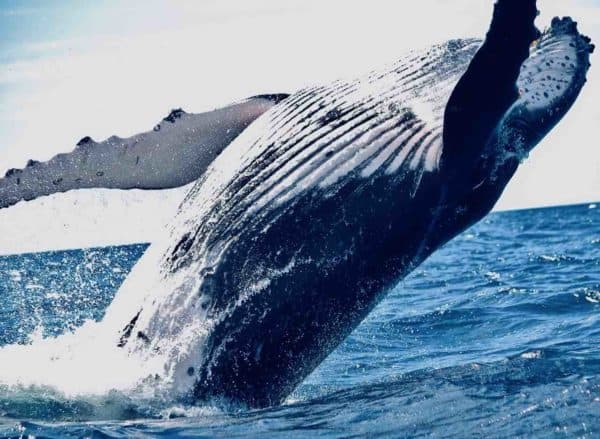Last Friday, OKEx blogged about a failed whale that posted a huge long position on Bitcoin. The unnamed whale booked an order for 4,168,515 contracts. The Hong Kong digital asset exchange explained the predicament and ensuing action:
“The client with user ID 2051247 initiated an unusually large long position order (4,168,515 contracts) at 2am on July 31 (HKT) and triggered our risk management alert system. Our risk management team immediately contacted the client, requesting the client several times to partially close the positions to reduce the overall market risks. However, the client refused to cooperate, which lead to our decision of freezing the client’s account to prevent further positions increasing. Shortly after this preemptive action, unfortunately, the BTC price tumbled, causing the liquidation of the account.”
OKEx has a “societal loss risk management mechanism” in place. The vehicle kicks in when the insurance fund is not able to cover the total margin call loss. This setup means that users who have a net profit across all three contracts that week will be subject to a crypto clawback. OKEx takes a portion of trader profits to cover the difference due to the action of, in this case, one single unscrupulous trader.
The cost to innocent traders? Approximately $15 million.
CEO of Modulus, Richard Gardner, slammed the action of OKEx – while recognizing its right do take such an action. Modulus is a developer of trading and surveillance technology for global equities, derivatives, and cryptocurrency exchanges.
“Based on the contract users agreed to, OKEx is within its rights to employ its clawback. But the fact remains that they never should have put their users in that position to begin with,” Gardner stated. “The exchange should’ve never executed the original order. I’ve read reports are calling it an ‘unusually large’ position. Unusually large, in this context, may qualify as the understatement of the year.” [emphasis added]
OKEx said the following actions have been taken:
- Inject extra 1000 BTC from OKEx’s own capital pool into the insurance fund.
- During the settlement at 4pm August 3, 2018 (HKT), if any attempts of malicious manipulation of the settlement price are found, we will delay the settlement process for 10 minutes and manually adjust the price back into a reasonable level before delivery or settlement. The account which made the malicious attempt will be suspended immediately.
 OKEx will also implement a new series of risk management “enhancements” including the adoption of a scaling margin ratio where bigger positions will require higher margin ratios. There will also be fixed margin limits applied per account to diminish the potential for “unusually large” positions.
OKEx will also implement a new series of risk management “enhancements” including the adoption of a scaling margin ratio where bigger positions will require higher margin ratios. There will also be fixed margin limits applied per account to diminish the potential for “unusually large” positions.
OKEx states that once an unrealized loss reaches a certain level, the shortfall will immediately be covered by the insurance fund. Their execution engine will “take over the forced liquidation orders and route to the market as soon as possible with a relatively aggressive execution algorithm to prevent further liquidation losses.” Once the insurance fund runs dry, traders will be at risk to their “socialized clawback.”
As for Gardner, he says that every time an exchange fails due to proper planning and risk management, the crypto industry gets another black eye in the press.
“Perception is everything. If exchanges don’t do right by their users, providing them with proper security, they put the whole industry at risk.”



